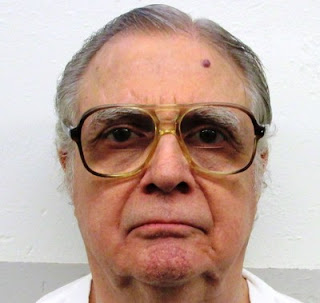 |
| Tommy Arthur |
Tommy Arthur, who was first sentenced to death in 1983, has long imagined what could be his end: time in a so-called death cell, a choice of a last meal, the final telephone calls and then a lethal injection.
That end could come Thursday, his eighth execution date in a case that has spanned the tenures of eight Alabama governors, starting with George Wallace. If it does, it will conclude a legal odyssey that quietly became, for death penalty supporters and critics alike, a symbol of the troubles of the capital punishment system in the United States.
“It’s one of those cases in which nobody is happy,” said Robert Dunham, the executive director of the Death Penalty Information Center, a research group that has voiced concerns about the application of capital punishment.
“People who simply want the execution are unhappy because of the passage of time,” he said. “People who oppose the death penalty are unhappy because they don’t want Tommy Arthur executed. People who want fairness are unhappy because, despite the length of time this case has been in the courts, the process has never been fair.”
In Alabama, where 58 people have been put to death since Mr. Arthur was sentenced for the 1982 murder of Troy Wicker, the most pressing issue these days seems to be how long it takes to carry out capital sentences. If Mr. Arthur, 75, is executed on Thursday, his death will come one week after the Legislature gave final approval to a plan to reduce the length of appeals in capital cases.
“Men don’t cry, but I have,” Mr. Arthur, whose case was unaffected by the measure, said in a telephone interview from the prison that houses Alabama’s execution chamber. “I’m scared to death right now.”
Mr. Arthur confessed to one murder but was given a death sentence for a second that he insists he did not commit. In regards to the latter, the state authorities contend that Mr. Wicker’s wife, Judy, hired Mr. Arthur, her lover, to carry out the killing so she could collect an insurance payout. Ms. Wicker, who was found guilty and spent about a decade in prison before being released on parole, ultimately testified against Mr. Arthur, who was on work release from a life sentence for another killing when Mr. Wicker was murdered.
➤ Click here to read the full article
Source: The New York Times, Alan Binder, May 24, 2017
⚑ | Report an error, an omission, a typo; suggest a story or a new angle to an existing story; submit a piece, a comment; recommend a resource; contact the webmaster, contact us:
deathpenaltynews@gmail.com.
Opposed to Capital Punishment? Help us keep this blog up and running! DONATE!












